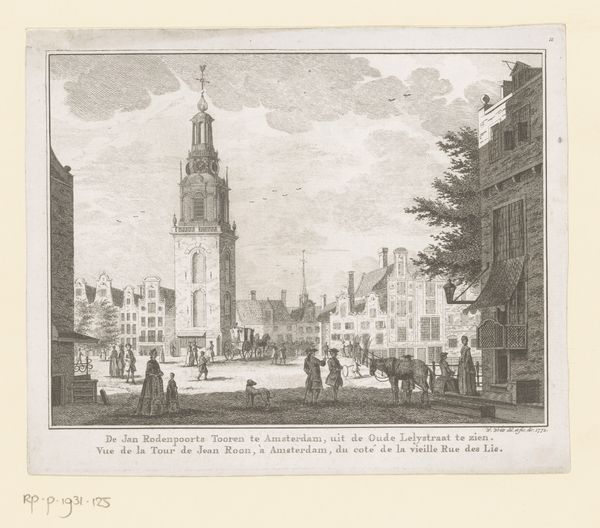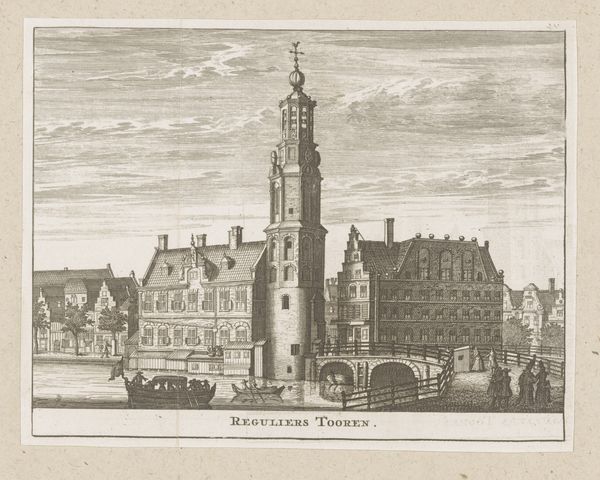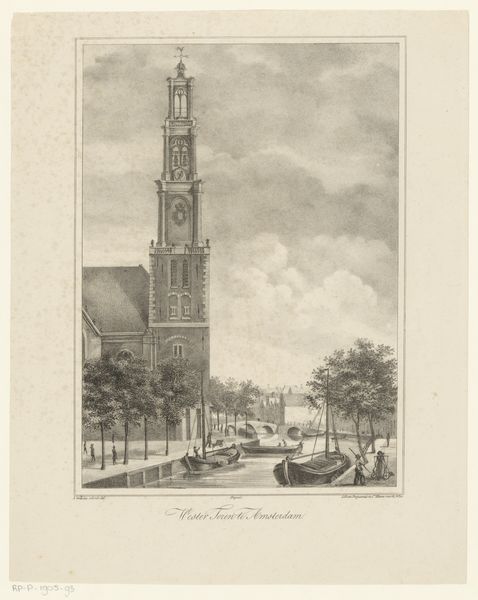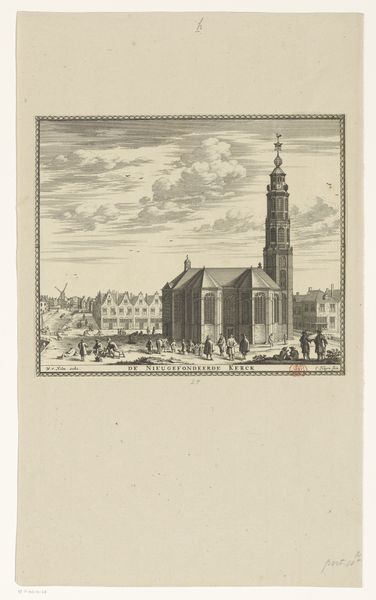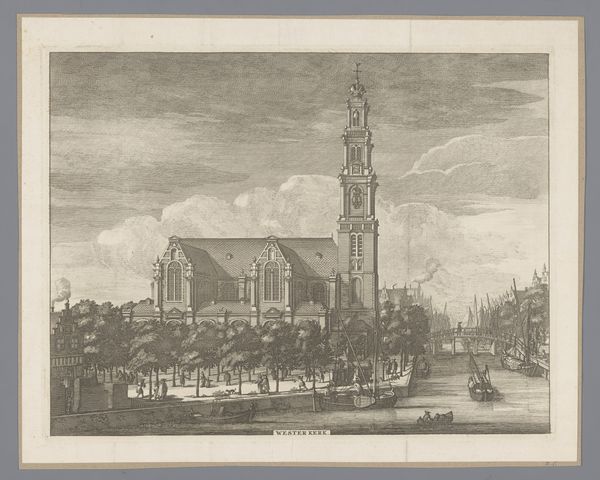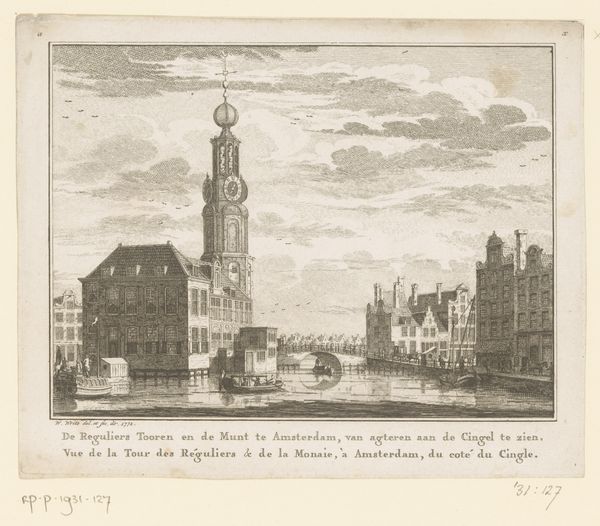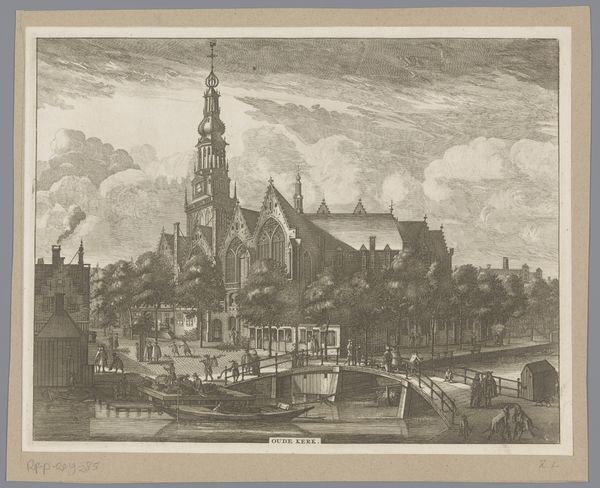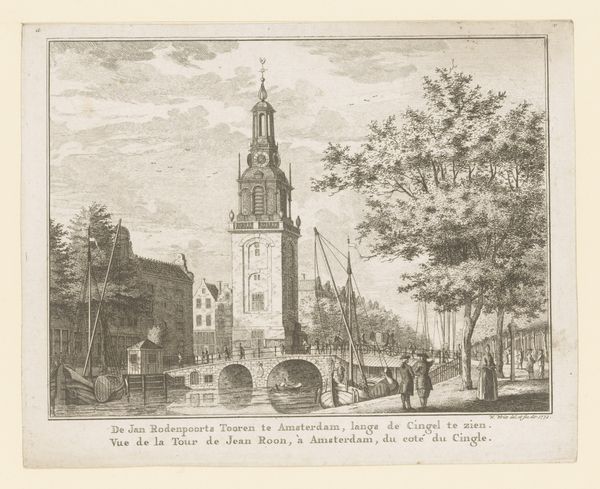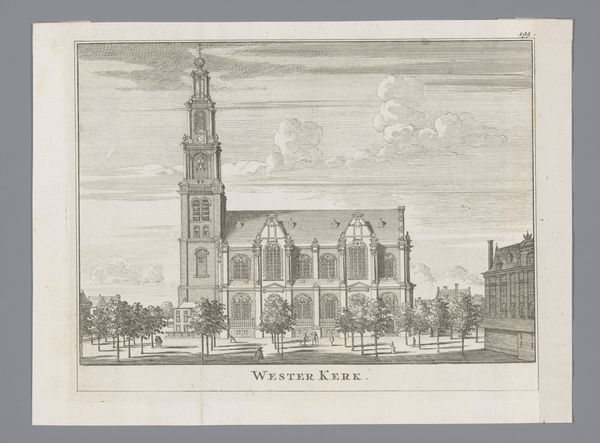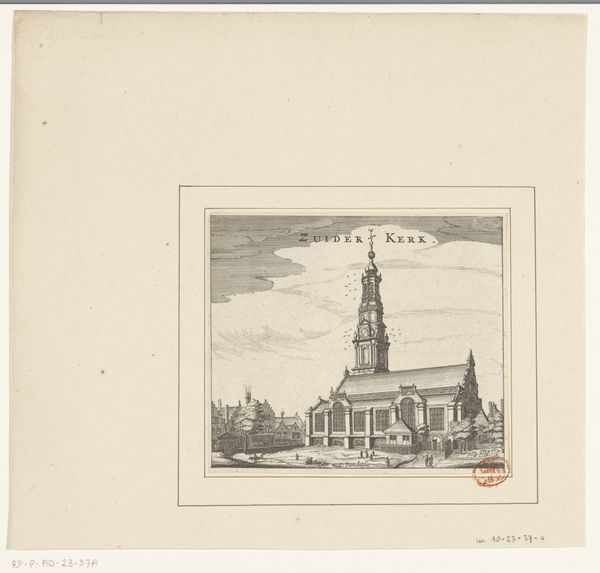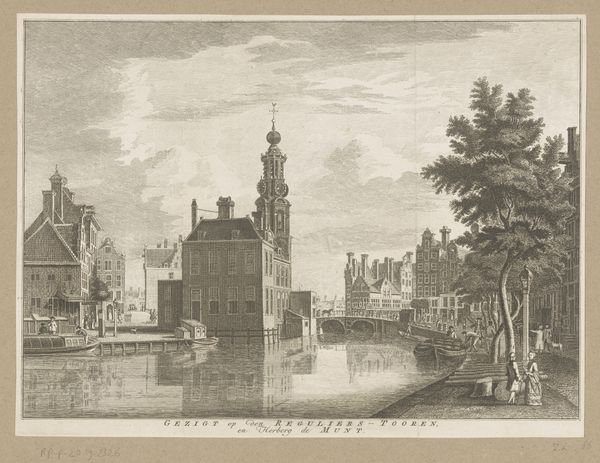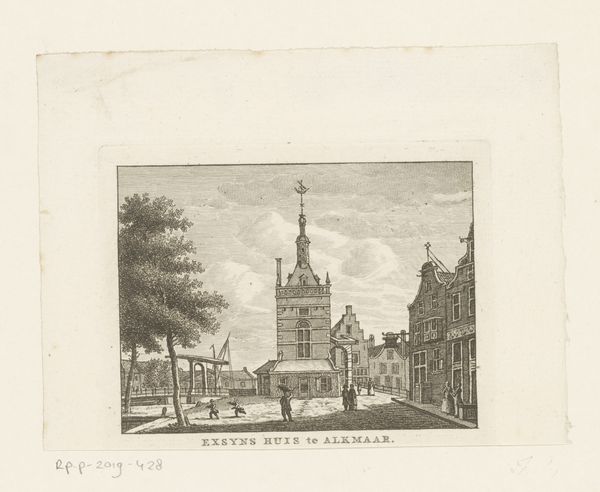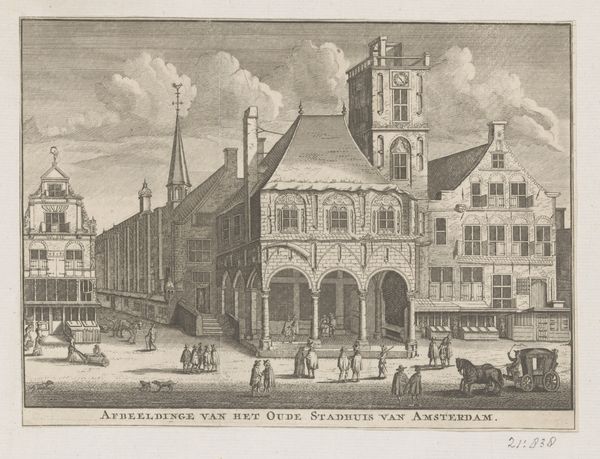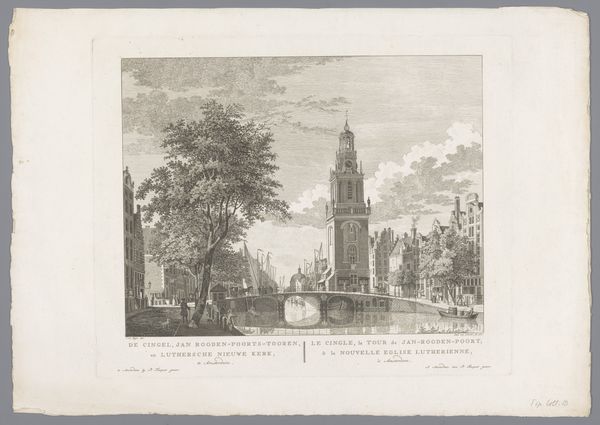
Gezicht op de Jan Roodenpoortstoren in Amsterdam 1786 - 1792
0:00
0:00
carelfrederikibendorp
Rijksmuseum
print, engraving
#
neoclacissism
# print
#
landscape
#
cityscape
#
engraving
Dimensions: height 86 mm, width 111 mm
Copyright: Rijks Museum: Open Domain
Curator: This print, created between 1786 and 1792 by Carel Frederik (I) Bendorp, depicts the Jan Roodenpoortstoren in Amsterdam. It’s currently held here at the Rijksmuseum. Editor: It's surprisingly delicate, isn't it? A restrained composition but the fine lines of the engraving give a real sense of place, almost hushed. The tower dominates, of course, but I keep noticing the everyday life at its base: the figures, the architecture... It speaks of community. Curator: Precisely. Prints like these were instrumental in shaping public perception of Amsterdam. They circulated widely, becoming powerful tools for constructing and disseminating ideas about the city's identity during a period of intense socio-political change. Think of it, this image became part of the city's brand, so to speak. Editor: Yes, and I imagine the making of these engravings themselves represented a sort of accessible art form? This piece, through its reliance on accessible material like ink and paper, democratized art-making and appreciation. You didn't need to be a wealthy patron to produce or consume imagery of the Jan Roodenpoortstoren. Curator: That's an interesting point. It shows the tension of that era with Neoclassicism, on the one hand emphasizing formality, and yet available to a broader audience because of its form. It certainly speaks to the changing role of art, with prints able to respond to societal issues as well as simply representing places. Editor: Look at the textures rendered. Notice how the material is treated to emphasize light and shadow in order to create depth and dimension. It elevates an everyday scene with detailed artisanship! Curator: You are right! Through its accessible art form of engraving the daily life in the city is shown for many, instead of just the few in society. Well, it makes you think differently about the city doesn’t it? It is always in flux. Editor: Absolutely, these close observations also allow you to really appreciate all of the effort taken to produce this piece!
Comments
No comments
Be the first to comment and join the conversation on the ultimate creative platform.
